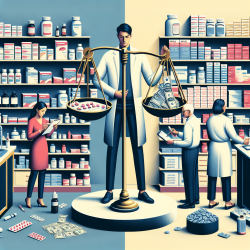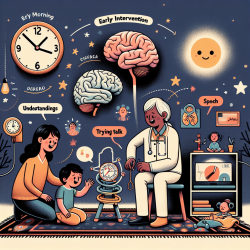Understanding Ethical Tensions in Pharmacy: A Path to Better Practices
In the realm of community pharmacy, practitioners often find themselves at the intersection of healthcare and retail. A recent study, "No one went into pharmacy … to sell a lot of Coca-Cola. It's just sort of a necessary evil," delves into the ethical tensions community pharmacists face due to their dual roles as healthcare providers and retailers. This blog explores the findings and suggests ways practitioners can enhance their skills by applying these insights.
Key Findings from the Study
The research involved semi-structured interviews with 25 Canadian pharmacists, revealing that most participants viewed their primary role as healthcare providers. However, the retail aspect of their work often imposed ethical dilemmas, particularly regarding front-of-store product selections.
- Most pharmacists reported limited control over the selection of non-drug products, with decisions often influenced by corporate policies and profitability concerns.
- Ethical tensions arose from the need to balance healthcare duties with business viability, leading to conflicts such as the sale of unproven or unhealthy products.
- Participants proposed solutions ranging from policy changes to one-on-one patient interactions to address these tensions.
Applying Research Insights to Practice
For practitioners looking to improve their skills and navigate these ethical challenges, the study offers several actionable insights:
- Engage in Continuous Education: Stay informed about ethical standards and best practices in pharmacy. This knowledge can empower pharmacists to make informed decisions that prioritize patient health.
- Advocate for Policy Changes: Support initiatives that promote clearer guidelines from pharmacy regulators regarding the retail environment. This can help mitigate ethical tensions by aligning business practices with healthcare objectives.
- Foster Open Communication: Encourage discussions with patients about product choices, emphasizing evidence-based recommendations. This approach can build trust and ensure patient-centered care.
Encouraging Further Research
While this study provides valuable insights, there is a need for further research to explore the ethical dimensions of pharmacy practice comprehensively. Practitioners are encouraged to participate in or support studies that examine the impact of retail environments on healthcare delivery.
Conclusion
The dual role of pharmacists as healthcare providers and retailers presents unique ethical challenges. By applying the insights from this study, practitioners can navigate these tensions more effectively, ultimately enhancing patient care and maintaining professional integrity.
To read the original research paper, please follow this link: "No one went into pharmacy … to sell a lot of Coca-Cola. It's just sort of a necessary evil" – Community pharmacists' perceptions of front-of-store sales and ethical tensions in the retail environment.










